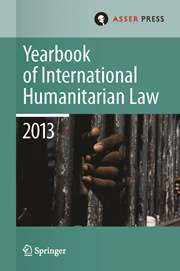Article contents
TARGETED KILLING OR LESS HARMFUL MEANS? – ISRAEL'S HIGH COURT JUDGMENT ON TARGETED KILLING AND THE RESTRICTIVE FUNCTION OF MILITARY NECESSITY
Published online by Cambridge University Press: 18 November 2008
Extract
In November 2000, a few weeks after the outbreak of a major uprising in the occupied West Bank and Gaza Strip, the Israeli government officially acknowledged it was operating a policy of targeted killing against selected Palestinian militants. On 14 January 2002, an Israeli (PCATI) and a Palestinian (LAW) human rights group jointly submitted a petition to the Israeli High Court to halt the policy and to issue an interim order suspending its implementation. The Court subsequently refused to issue the requested interim order and, when it finally delivered its judgment in the case on 14 December 2006, at least 213 targeted persons and 137 bystanders had been killed and hundreds of others injured in operations of targeted killing. In its judgment, the Court neither banned nor justified the state policy as a whole, but ruled that the lawfulness of targeted killings must be examined separately for each operation.
- Type
- Articles
- Information
- Copyright
- Copyright © T.M.C. Asser Instituut and the Authors 2008
- 35
- Cited by


